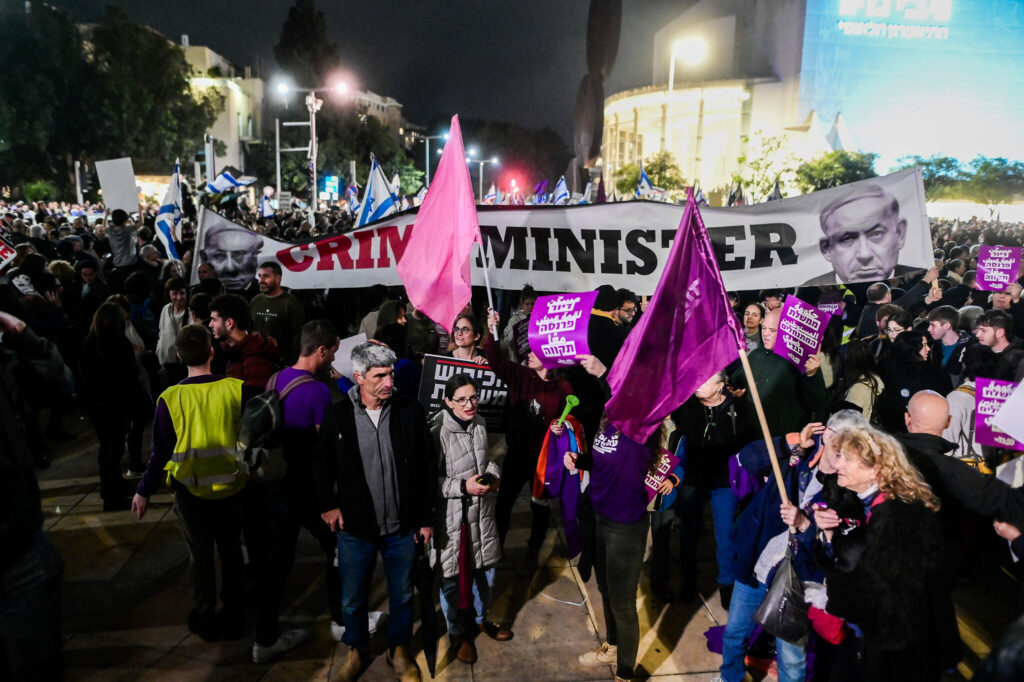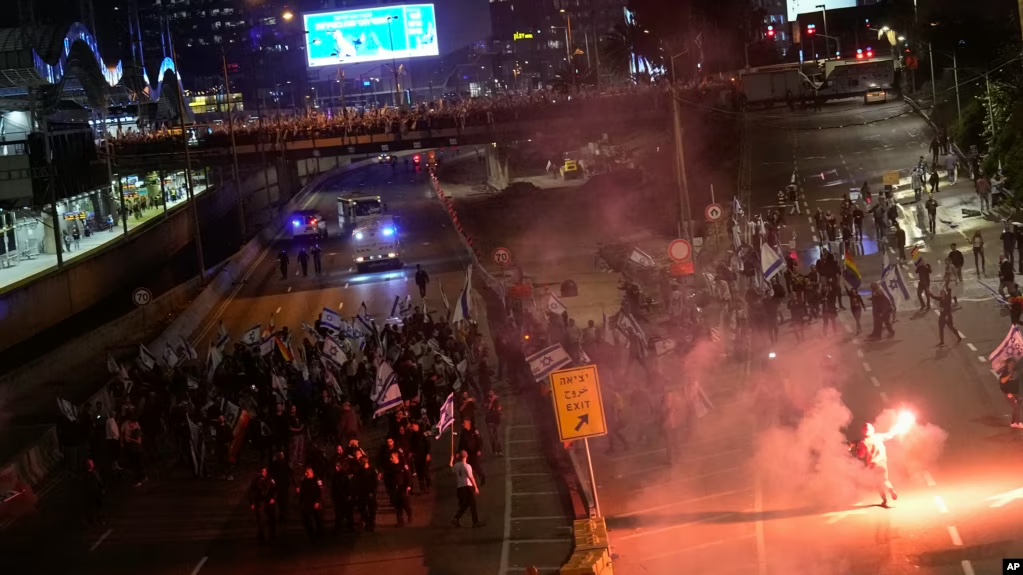
ISRAEL BOILS AS NETANYAHU OUSTS MINISTER WHO BUCKED COURT OVERHAUL
In a one-line statement from the Prime Minister’s office, the sacking of Yoav Gallant as Israel’s defence minister exacerbated an already tumultuous domestic crisis. The crisis was set off by the government’s attempt to give itself greater control over the selection of Supreme Court justices and to limit the court’s authority over Parliament. Gallant had urged that the judicial legislation be postponed, warning that it was causing turmoil in the military and, therefore, a threat to Israel’s security.

THE DISMISSAL OF YOAV GALLANT
Mr Gallant’s dismissal unleashed chaotic late-night demonstrations in and around Tel Aviv, where protesters blocked a multilane highway and set fires in at least two major roads, and in Jerusalem, where crowds broke through police barriers outside Mr Netanyahu’s private residence. As midnight approached, it also prompted the heads of Israel’s leading research universities to collectively announce that they were closing their class rooms for the immediate future; Israel’s consul-general in New York to resign, and Histadrut, the country’s largest workers’ union, to warn that it may announce a general strike on Monday in conjunction with leading businesses.
MR GALLANT’S DECLARATION
Mr Gallant’s declaration followed a surge in military reservists refusing to fulfill their volunteer duty in protest of the judicial overhaul. Military leaders had warned that a decline in reservists, who form a key part of the air force pilot corps, might soon affect the military’s operational capacity. Mr Netanyahu did not issue a full explanation for his decision to fire Mr Gallant. But briefing Israeli news reporters, his office said that Mr Gallant had not done enough to dissuade reservists from refusing to serve, implying that Mr Gallant had helped stoke the security risks he warned of.

THE GOVERNMENT’S PROPOSED OVERHAUL
If Mr Netanyahu’s goal in firing Mr Gallant was to muscle through the judicial changes, presenting his country with a fait accompli and neutralizing the opposition, it may have backfired. As unruly as some of the protests have been to date, none matched the intensity of the ones that materialized spontaneously late Sunday within minutes of the prime minister’s announcement. The government and its supporters say the change is necessary to make the court more representative of the diversity of Israeli society, and to give elected lawmakers primacy over unelected judges. Critics say the move would give the government too much power over the judiciary, removing one of the few checks on government wrongdoing and perhaps leading to authoritarian rule.
THE INTENSITY OF THE PROTESTS
The protests were so fierce that governing lawmakers, who hours earlier had seemed confident of voting in their changes in the coming days, began to express doubts that they could do so. “Even though judicial reform is essential, the house is on fire, the rift in the nation is growing and our job is to stop it,” Miki Zohar, a lawmaker from the prime minister’s party, Likud, said in a television interview in the early hours of Monday. “If Netanyahu takes the decision to postpone a decision until after Independence Day” — in late April — Mr Zohar said, “we must all support him. Israel above everything, and our security above all.”

THE POSSIBILITY OF HEIGHTENED FRICTION BETWEEN NETANYAHU AND THE BIDEN ADMINISTRATION
Mr Gallant’s firing also raised the possibility of heightened friction between Mr Netanyahu and the Biden administration, which has become increasingly vocal about its reservations over the judicial plan. Mr Gallant, 64, was one of the more moderate members of the Likud Party, and his dismissal could worsen the government’s relationship with the United States

Conclusion
The firing of Yoav Gallant, the defense minister in Israel, by Prime Minister Benjamin Netanyahu has sparked protests and civil unrest in the country. The crisis over the government’s attempt to overhaul the judiciary has caused a rift in the governing coalition, strained relations with the Biden administration, and led to rare political intervention from trade unionists and senior academics. Mr. Gallant’s dismissal has also raised concerns about the impact on Israel’s security, as reservists in the military have refused to fulfill their volunteer duty in protest of the judicial overhaul. The situation remains tense and uncertain, with the possibility of further unrest and political instability in Israel.
Disclaimer
The information and views presented in this article are solely for informative and educational purposes. They do not represent the views, opinions, or policies of the author. The article does not intend to promote any political, social, or legal agenda, and any interpretation of the events discussed in this article is solely the reader’s responsibility. The article is not intended to provide any legal or political advice and should not be relied upon as such. The reader should seek appropriate legal, political, or social advice from qualified professionals before taking any action related to the topics discussed in this article. The author and OpenAI are not responsible for any actions taken by the reader based on the information presented in this article.

Outstanding feature